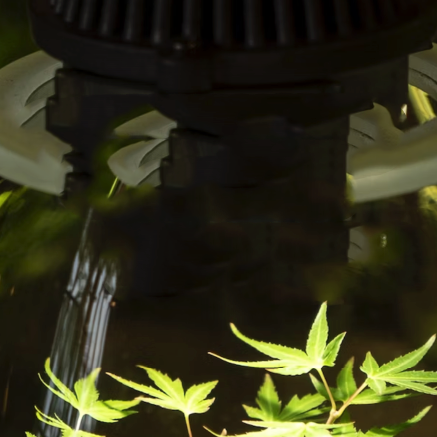Ever-growing numbers of gardeners are experimenting with using microbes to improve growth rates and overall plant health. Though microbe-based additives are typically found in organic grow set-ups, they can, in fact, be utilised in almost any grow system or media type, as long as they are never used in conjunction with sterilising agents (like Silver Bullet).
The Plant Success range is one of the best-selling microbe ranges out there. That’s because it’s built a reputation for delivering great results over many years, with an army of loyal customers. Cheaper products often underperform, containing fewer colony forming units (CFUs) than stated. Plant Success ensure that their products reach you with exactly what the label indicates.
In this blog, we’ll talk you through the key additives and where to use them. One thing to note that’s universal is that you should always start as early as possible, especially if you’re using mineral based feeds. This gives the microbes time to colonise the rootzone, making them more effective in the long run. Starting halfway through the flowering stage will never have the same impact. A good rule of thumb is to get started as soon as your cuttings and seedlings are properly rooted.
King Crab
King Crab is a new addition to the range with a specific focus on nutrient uptake. The microorganisms it contains convert nutrients that were previously bound up into forms that are readily available. As is the case with a similar product, Mammoth P, there’s a focus on phosphorus, which is a particularly problematic macronutrient, though it has a similar impact on the rest of the nutrients in the substrate. This process makes the whole rootzone run more efficiently, which has knock-on effects for the rest of the plant. The kinds of issues that King Crab address are more common with mineral based feeds. For this reason, we recommend using King Crab if you’re running mineral feeds in soil or coco, especially when hand-watering.
Great White
When it comes to variety, Great White is the daddy of all microbe additives, featuring an enormous selection of microbes that perform a range of tasks too comprehensive to list in an average blog (you’d need a PhD thesis for that!). You’re getting endo and ectomycorrhiza, bacteria and trichoderma all in one product. It’s the most popular product in the range for a good reason. If you’re an organic grower looking to get the full spectrum of microorganisms into the substrate, then Great White is your dream product.
Orca
Orca offers similar benefits to the other additives in the range, but it’s tailored towards growers running hydroponic systems. As we mentioned earlier, never use beneficial organisms alongside products like Silver Bullet and Liquid Oxygen because you’ll kill them off! You’ll need to make a choice about how to prevent root disease in your system: using Orca will ward off dangerous pathogens by increasing levels of beneficial microorganisms, whereas Silver Bullet, etc., will sterilise everything in your system. If you can keep your nutrient temperatures below 20 degrees (chillers will help with this), then we’d opt for the beneficials.
Myco Chum – Premium Microbe Food
As we’ve seen, the Plant Success range fortifies your rootzone with an array of plant-boosting microorganisms. Like humans, however, these microorganisms need food to survive. By giving them access to the right nutrients, they can then multiply in number and perform their roles much more efficiently and effectively. Myco Chum is formulated for this exact purpose, providing ingredients that microorganisms love to feed on. And the good news is that these ingredients also have powerful, direct effects on your plants, too.
Fish hydrolysate is especially useful during the vegetative growth stages, delivering extra nitrogen and amino acids. Kelp is loaded with growth stimulants that accelerate various biological processes, speeding up overall development and improving plant health. It also contains a wide range of micronutrients that help to prevent deficiencies. Humate comes from degraded organic matter and is commonly used as a soil-improver. One of its main roles is as a chelator, binding to minerals to make them more available for uptake by plants. Molasses helps to push plants to their absolute limits during the flowering stages, piling on weight and increasing essential oil production. This is largely due to the impact molasses makes on energy metabolism. Not only is it rich in carbohydrates, but also calcium, iron, selenium, copper and magnesium.

